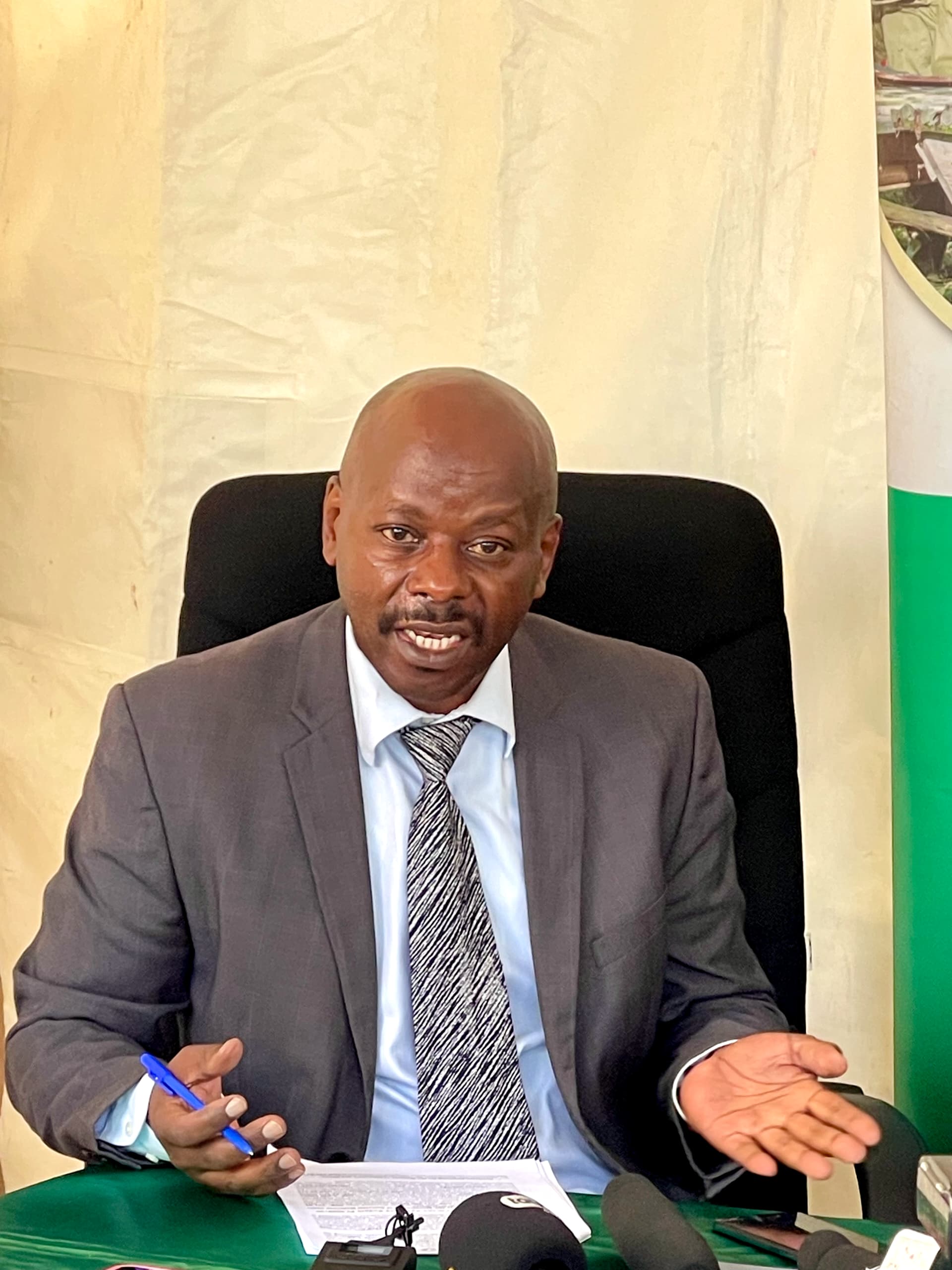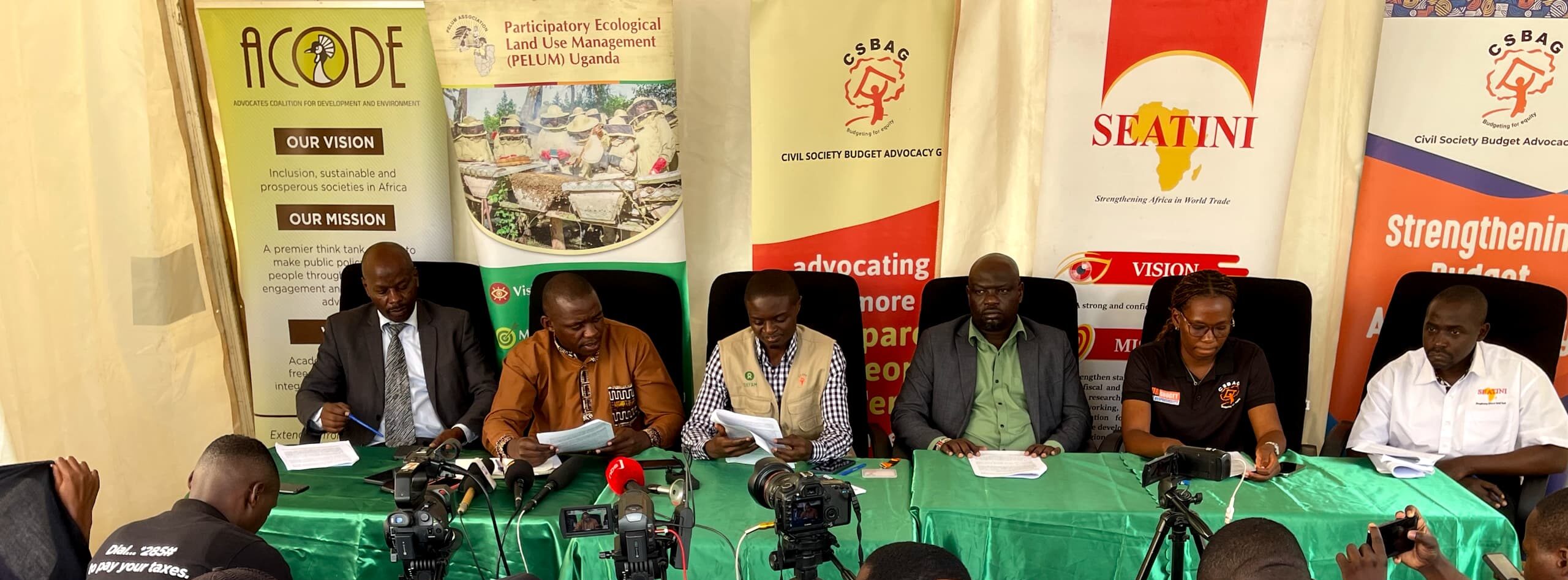CSOs slam FY 2025/26 budget over rising debt, fiscal concerns

Civil society organizations (CSOs) have voiced strong concerns over Uganda’s recently approved FY2025/26 national budget, criticizing the government for exacerbating public debt, abusing supplementary budgets, and setting unrealistic revenue targets. The remarks were made during a press conference held today, June 8, 2025, in Kampala, organized by the Civil Society Budget Advocacy Group (CSBAG) in partnership with Uganda Debt Network (UDN), ACODE, SEATINI, PELUM Uganda, Transparency International Uganda, FRA Uganda, and the Uganda NGO Forum.
Speaking at the presser, Mr. Gilbert Musinguzi, the Quality Assurance Manager at Uganda Debt Network, expressed alarm over the ballooning public debt and its implications for service delivery.
“The government plans to borrow UGX 34.82 trillion to finance the UGX 72 trillion budget. This will push the debt-to-GDP ratio to 53.34%, far beyond the 50% cap set in the Charter of Fiscal Responsibility,” said Musinguzi. “It’s unsustainable. We are heading toward a debt trap, where a quarter of our revenue will go into interest payments instead of essential public services.”
According to the Ministry of Finance’s Debt Statistical Bulletin released in April 2025, Uganda’s total public debt stood at UGX 106.97 trillion by December 2024 an increase of 9% from the previous year. Civil society actors underscored that while government borrowing over the past decade has reached UGX 43.25 trillion, only UGX 26.84 trillion has been utilized, leading to massive costs in commitment charges.
“We are paying for loans that remain unused,” Musinguzi noted. “In FY2023/24 alone, UGX 1.89 trillion in undisbursed loans added UGX 73.9 billion in commitment fees. This is unacceptable.”
CSOs also pointed to rampant fiscal indiscipline, particularly the abuse of supplementary budgeting, which they say distorts planned expenditures and undermines transparency.
“We see a worrying trend where billions are allocated through supplementary budgets without proper approval or actual need,” said Musinguzi. “For instance, UGX 298 billion was recently allocated to the Lubowa Hospital project, which has shown zero progress since its inception.”
A report from the Auditor General showed that in just six years, UGX 30.2 trillion was disbursed through supplementary budgets, with UGX 17.3 trillion remaining unspent. In 2022/23, unspent supplementary funds even exceeded the total supplementary budget itself UGX 5.8 trillion versus UGX 4.4 trillion.
CSOs are demanding strict adherence to the Public Finance Management Act (PFMA), 2015, especially Section 25 which governs supplementary allocations, to curb what they describe as systemic abuse.

Another major concern raised was the persistent failure of the Uganda Revenue Authority (URA) to meet revenue collection targets, which CSOs say undermines the government’s ability to finance its own budget and avoid further borrowing. In FY2023/24, URA collected UGX 27.86 trillion against a target of UGX 29.96 trillion. The target for FY2025/26 has now risen to UGX 37 trillion.
“With one month left in the current financial year, URA still needs to collect UGX 4 trillion. It’s highly unlikely, and yet government keeps setting higher targets without addressing the underlying structural weaknesses in tax collection,” Musinguzi warned.
The CSOs noted that Uganda’s tax system relies heavily on a narrow tax base, with high informality (72% of businesses), weak tax morale, and rampant illicit financial flows and tax avoidance.
They called on the government to improve transparency, rebuild public trust, and implement tax policies that reflect the realities of Uganda’s largely informal economy.
“The government must demonstrate that it is using collected revenues efficiently and accountably. Only then will citizens willingly comply with tax obligations,” Musinguzi emphasized.
The national budget was passed by Parliament on May 15, 2025, in accordance with Section 9(3) of the PFMA, 2015.
As the new fiscal year approaches, civil society actors are urging Parliament and oversight bodies to demand greater accountability from the Executive, and ensure budget execution aligns with Uganda’s long-term development goals and fiscal sustainability targets.




